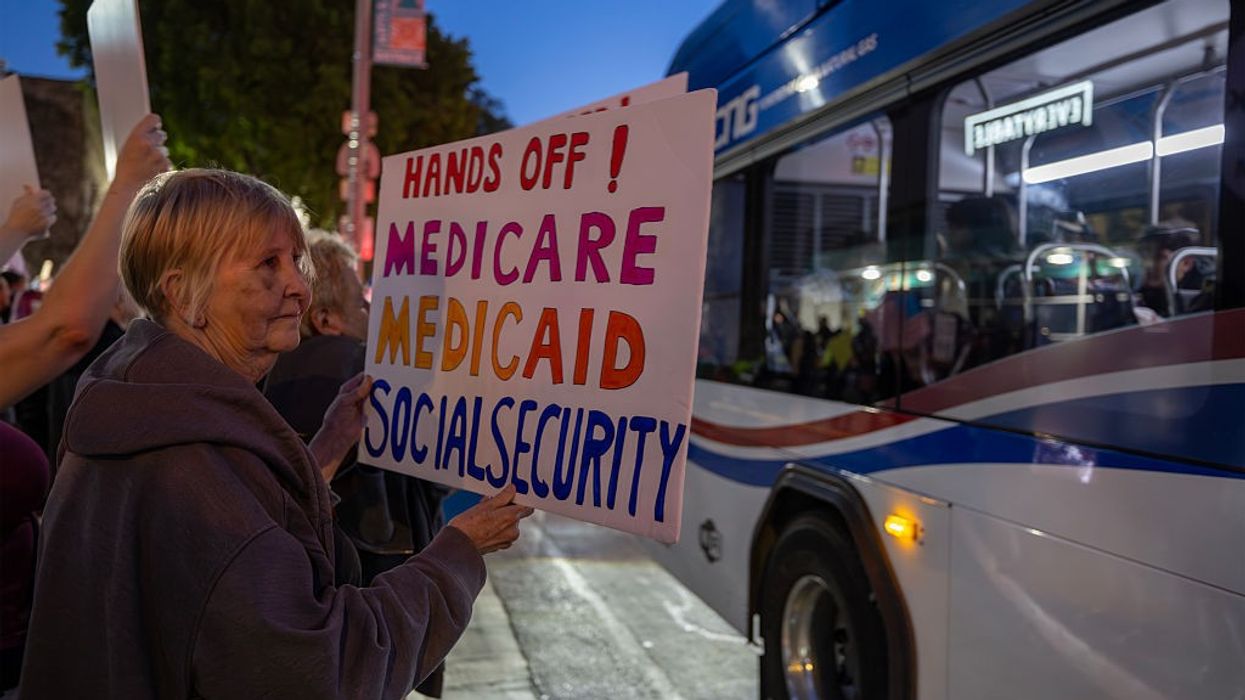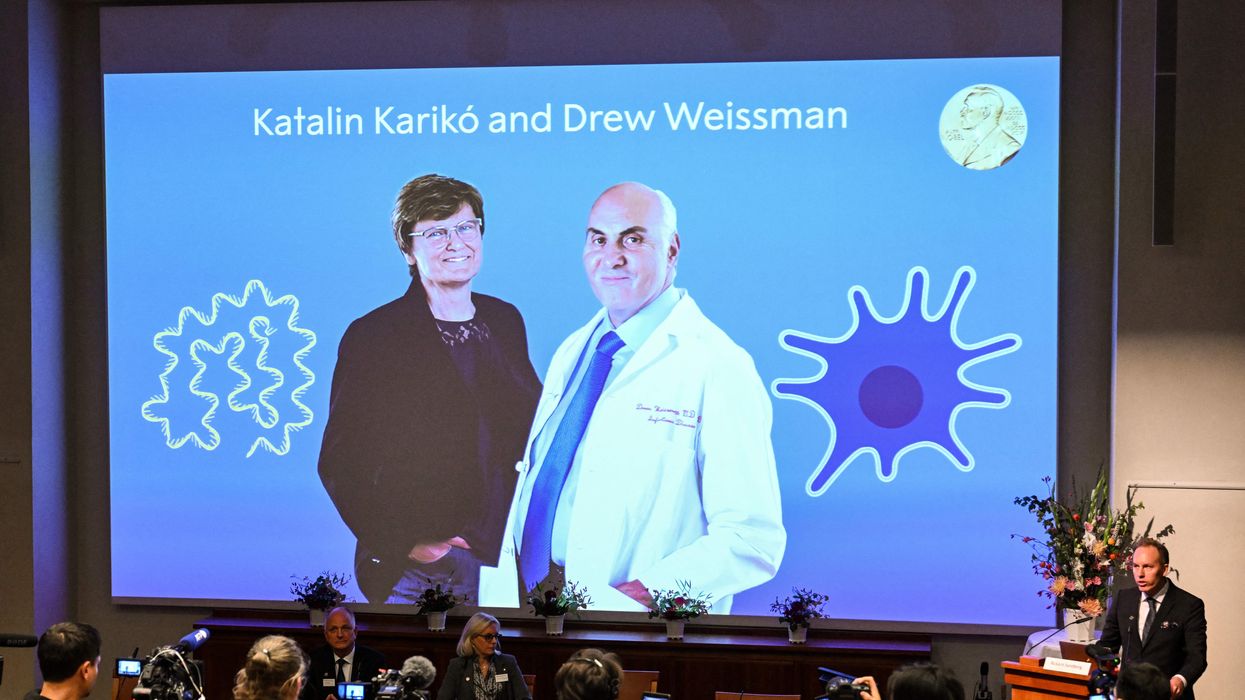One demonstrator held a banner that read, "U.S. + Israel Guilty of Genocide."
"This is not a diplomatic visit. This is a disgrace," said Robert McCaw, Director of Government Affairs at the Council on American-Islamic Relations (CAIR). "Every handshake, every deal, every photo op [of Netanyahu] with American leaders stains the hands of all Americans with the blood of children from Gaza."
According to official estimates, more than 57,000 Palestinians have been killed in Israel's military campaign in Gaza since 2023, including over 17,000 children. The total casualty number does not include the more than 11,000 estimated to be buried beneath rubble.
Other estimates suggest that the death toll is potentially much higher when factoring in the indirect effects of Israel's blockade of humanitarian aid, which have caused widespread hunger and disease.
"Netanyahu doesn't belong in D.C. He belongs in The Hague," wrote Medea Benjamin, co-founder of the anti-war group CodePink on X.
Anti-war Jewish groups and figures were among some of the loudest voices.
Another protester, Yehuda Cohen, the father of an Israeli hostage who has been trapped in Gaza since October 7, 2023, called on Trump to "force Netanyahu to end the war and go for a hostage deal," which would allow his 21-year-old son Nimrod to return home.
He echoed the accusation that the families of many other hostages still in Gaza have leveled at Netanyahu, that he has sabotaged efforts at a cease-fire to maintain his tenuous hold on power.
"He's got right-wing extremists in his coalition who want the total occupation of the Gaza Strip," Cohen said. "They want to rebuild settlements there, and that's why they are threatening that they will withdraw from the coalition if we go for a cease-fire."
Cohen was part of a separate rally organized by the group New Jewish Narrative, which brought dozens of protesters to the White House in anticipation of Netanyahu's visit.
"When Trump sits across from Netanyahu on Monday, I hope he doesn't just nod along," said Hadar Susskind, the group's president. "I hope he demands an end to the war. I hope he uses all of the leverage he has to bring an end to this war, to rush humanitarian aid into Gaza, and to bring all of the hostages home."
Those calls not only fell on deaf ears, they were thoroughly doused once the meeting began. Trump and Netanyahu seemed to be moving in lockstep, with both reiterating their desire to carry out a plan to permanently expel Palestinians from Gaza, which Trump first proposed publicly in February.
Netanyahu told reporters that he and Trump were working on negotiations with other countries that could take in the people of Gaza who'd been relocated.
"We're working with the United States very closely about finding countries that will seek to realize what they always say, that they wanted to give the Palestinians a better future. I think we're getting close to finding several countries."
Netanyahu framed this as a humanitarian effort to allow Palestinians to leave the "prison" in Gaza and suggested that those who want to stay "can stay." However, the prime minister's recent comments to the Israeli Knesset have shown that making Gaza uninhabitable so its residents will be forced to move is his explicit goal.
In leaked comments obtained by the Israeli magazine +972 in June, Netanyahu assured legislators: "We’re destroying more and more homes—they have nowhere to return to. The only natural outcome will be that Gazans will want to emigrate out of the Strip. Our main problem is with receiving countries."
In comments to NBC News Tuesday, Mustafa Barghouti, a politician with the Palestinian National Initiative Party, described Netanyahu's claim that migration from Gaza would be "voluntary" as a farce.
"When they say it would be voluntary, that is so misleading," Barghouti said. "When you bomb people every day, when you starve people for 126 days, who can call that a voluntary decision?"
[Update: This article has been edited to clarify that the rally hosted by New Jewish Narrative, at which Yehuda Cohen spoke, was a separate event from the one organized by the group American Muslims for Palestine.]




